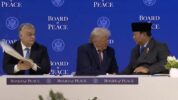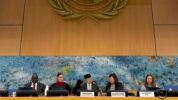The Fed Expected to Cut Interest Rates Once in 2025: Impact on Indonesia’s Economy
The current federal funds rate, which stands at 4.25% to 4.5%, was maintained by The Fed during its January 2025 meeting, following three consecutive cuts at the end of 2024. The decision to keep rates steady has sparked concerns that the Fed may not reduce rates further as anticipated, dampening global expectations of future cuts.
The uncertainty surrounding The Fed’s decisions, combined with the ongoing trade wars and tariff impacts, is contributing to increased volatility in global financial markets. This has led to a growing belief that the chances of further interest rate reductions from the U.S. central bank are limited, adding another layer of uncertainty to the global economic outlook.
For Indonesia, this means that the flow of foreign capital could continue to favor the U.S. rather than emerging markets. As a result, the rupiah could come under pressure, and Indonesia’s economy could face challenges in maintaining stability amid these external factors. The Fed’s policy decisions, along with the political and economic dynamics in the U.S., will continue to shape global financial conditions and impact developing nations like Indonesia.
Juli concluded by emphasizing the need for careful monitoring of global economic trends, especially the developments in the U.S. and its trade relationships. The decisions made by The Fed and other key global players will likely play a crucial role in shaping the economic landscape in Indonesia and other emerging markets in the near future. (Uki Ruknuddin)



























Tinggalkan Balasan